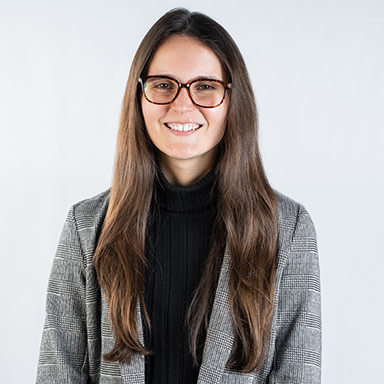
Courtesy of Apple
With Malala Fund’s support, Tabshoura will be made available to schools without an internet connection, reaching more refugee students.
Sitting in Nayla Fahed’s office is a 10 centimetre by 7 centimetre box that may not look special, but contains the power to create a virtual classroom for marginalised communities. Tabshoura in a Box is a new educational platform that works independent of internet and electricity, and provides a hotspot where students can connect computers and access digital learning resources. Nayla piloted the new technology with students in her organisation, the Lebanese Alternative Learning (LAL), which is supported by Malala Fund’s Education Champion Network. The ability to work without internet or electricity is key for low-resource environments, like refugee communities. The box is pre-loaded with the educational programme Tabshoura, which teaches students problem solving, reasoning and communication in order to develop critical thinking skills.
Nayla believes that Tabshoura in a Box has the potential to help Syrian refugees in Lebanon adjust back to classroom learning. Refugees are often out of school for long periods of time. If granted the opportunity to re-enter the classroom, many students find catching up on the years they missed is too difficult and often abandon their education. “They cannot follow the class level,” says Nayla. "The platform will help them learn at their own pace and understand concepts they did not understand in class.”
Increasing the number of refugees students who complete 12 years of education is only part of Nayla’s goal. She also wants to change the "social prejudice that girls are not good in sciences.” Refugee girls are usually forced into vocational training like cooking or sewing, while boys are encouraged to study STEM. Tabshoura in a Box places a particular emphasis on teaching refugee girls STEM. By teaching scientific and technological skills through Tabshoura in a Box, Nayla hopes to equip them with the tools to support themselves and bring social change to their communities.
Nayla’s work in Lebanon is particularly important as refugees from Syria make up a quarter of the Lebanese population. There are 82,744 registered Syrian refugees ages 15–18 as of August 2015 and less than 3% enrolled in public secondary schools during the 2015–2016 school year.
Nayla piloted Tabshoura in a Box with 397 secondary school girls. With Malala Fund’s support, the platform will be made available to schools without an internet connection, reaching more refugee students. LAL expects to impact more than 10,000 students over the next two years.
Nayla believes e-learning programmes can offer a path back into the classroom for refugee girls and open up their futures to greater opportunities. Nayla is determined to provide every child with "access to quality interactive education,” one box at a time.
Nayla Fahed and her work with Tabshoura in a Box is supported by Malala Fund’s Education Champion Network — an initiative that invests in the work of education activists in developing countries. With Apple’s support, Malala Fund plans to double the number of Education Champion Network grants to support more local education activists like Nayla.
